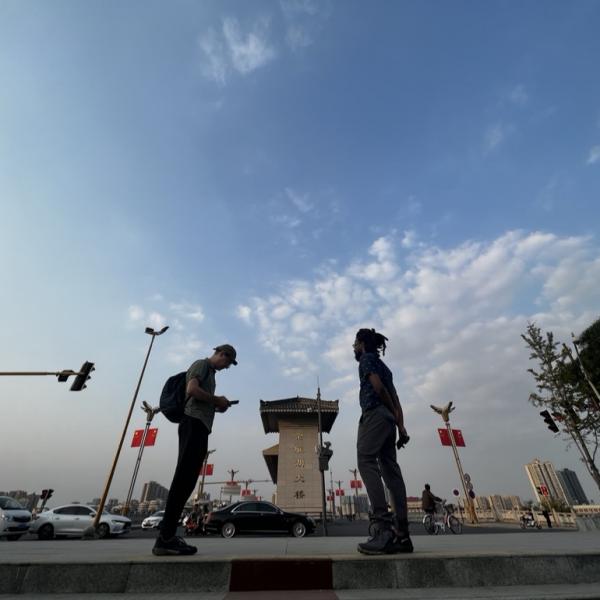The new undergraduate research program will support students who are pursuing projects related to all meanings of the phrase "living history."
Three Arts & Sciences juniors have been named the inaugural Living History Scholars in the Department of History. History majors Chloe West and Aidan Smith and African and African American studies major Olivia Kerr are pursuing advanced research projects this semester and will present their initial findings later in April.
West is researching the way that collective memory and mythologization worked in the period following the War of the Roses in England. “I am excited to conduct my own independent research on a topic which I am interested in but have not had an opportunity to learn about in class,” West said. “I have learned a lot about the process of independent academic research. I also have been struck by some of the similarities in the aftermath of the wars I am researching (such as the US Civil War) despite them occurring centuries and continents apart.”
Kerr and Smyth are studying the way that the built environment of St. Louis encodes practices of inequality into the physical landscape of the city. One of the sites they are studying is the Cortex Innovation Community in the Central West End. “We are looking into who the space benefits, what it adds to the community, and, more importantly, what it may have taken away,” Smyth said. “A striking aspect of the innovation district is the intense surveillance people are subjected to immediately upon entering the space: security cameras follow your every move. What does this suggest about who the space is meant for? What message does this send to the community?”
The two researchers are also exploring the impact that gentrification has had on Black communities. “This project is proving to be extremely enriching as I am honoring Black folks that lived before me,” said Kerr. “I have found interesting information regarding Black towns that existed in the recent past of St. Louis erased by gentrification and urban development. I will focus my research on Robertson, MO and its absence from the Missourian imagination, including what that means in the larger contexts of space and sites of loss.”
Iver Bernstein, professor of history, African and African-American studies, and American culture studies, directs the new initiative. These first two projects are part of a soft-launch for the initiative, which he hopes will grow in years to come.
“Each of these projects is notable for its promise to make a real contribution to knowledge,” Bernstein said, “building on the interests and skillsets of the students involved; for the way it represents an original perspective on what ‘Living History’ can be; and for its likely generation of new knowledge ‘products’ that will be of interest and value both to students and faculty and to broader audiences and constituencies.”





